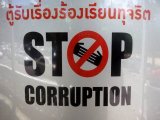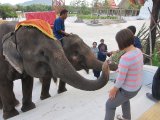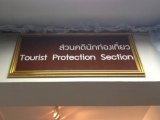According to CNN, Article 14 reads as follows: ''Tourists shall observe public order and respect social morality in tourism activities, respect local customs, cultural traditions and religious beliefs, care for tourism resources, protect the ecological environment, and abide by the norms of civilised tourist behaviors.''
Precisely what are the norms of civilised tourist behaviors? Let the debate begin.
Picking your nose in public probably doesn't qualify.
In September, China's National Tourism Administration issued an illustrated 64-page 'Guidebook for Civilized Tourism' to instruct citizens on social norms overseas.
CNN reports that the booklet covers everything from reminders to say ''please,'' ''thank you,'' and ''excuse me'' to specific cultural items such as one that says ''In Iran, do not talk about babies' eyes.''
''When we are visiting a foreign place, we're the guests and have to treat the host with respect,'' says the guide.
Earlier this year, a Chinese tourist was caught defacing a stone sculpture in an ancient Egyptian temple with graffiti, so point eight in the first section of the guide reminds visitors to respect historical relics: ''do not scribble on, climb on or touch them.''
Other items remind tourists not to spit in inappropriate places, not to litter, and only urinate or defecate in designated places.
Other notable official pieces of advice:
Photography: ''When taking photos in tourist spots, do not fight and be patient. Do not force the others to take a picture with you, nor obstruct the others when they are photographing. If you would like the others to take a picture for you, say thank you.''
Toilet use: ''Do not occupy the public toilet for a very long time. Do not leave footprints on the toilet seats and flush after use.''
Queue jumping: ''Respect order in public. Jumping the line is not acceptable anywhere.''
On tipping: ''Service industries in a lot of countries honor tipping. If you think the service is good, please tip accordingly.''
At the buffet table: ''When you're at a buffet dinner, only take what you can consume. Do not waste food.''
Taking in a show: ''Respect the performers. Clap after the show to show your gratitude to the performers. During curtain call, join the crowd for a standing ovation. If a performer slips up on stage, be understanding but do not cheer, whistle and jeer.''
Another section of the guide covers items such as proper etiquette on flights and how to check into a hotel, while part three deals with specific cultural situations.
In the UK: ''Do not greet the others by asking them questions like 'Where are you going?' or 'Have you eaten yet?' as you would in China.''
In Korea: ''Don't pick up your chopsticks before your senior. And face sideways when drinking alcoholic beverages.''
In Italy: ''Do not give someone a handkerchief in Italy. It is considered an omen for wiping tears when you lose someone.''
In Spain: ''Ladies should wear earrings when going out. Otherwise, it is the same as going out naked.''
In Phuket: ''Do not walk on footpaths along the shorefront in Patong. The footpaths are reserved for locals riding motorcycles.''
Ok, we admit that we just made up the ''In Phuket'' entry.
Phuketwan is now putting together a 'How to be a Good Tourist Host' guide for Phuket's jet-ski operators, tuk-tuk and taxi drivers, ping pong show artistes and slow loris touts.



















I think its great. At least the Chinese government is taking an interest in educating its people about how people should behave.
This should be given to ALL citizens around the world who travel.
Well Done China!
Posted by Tbs on October 7, 2013 08:43